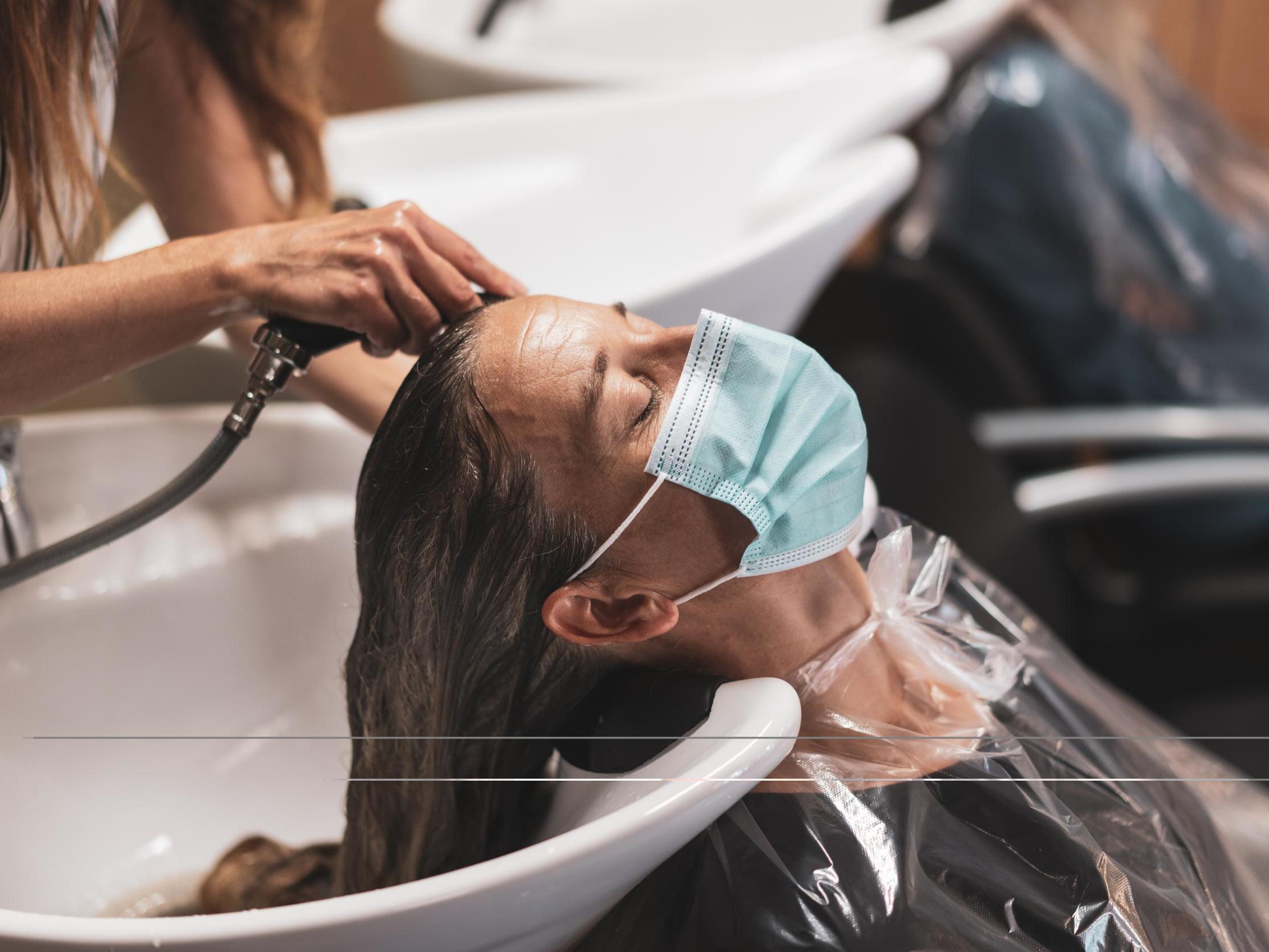Hairdressers and barbers opening: What are the new rules and guidelines and are they safe?
After months of lockdown haircuts, we can finally let the professionals take over on 4 July as hairdressers and barbers reopen in England

Your support helps us to tell the story
From reproductive rights to climate change to Big Tech, The Independent is on the ground when the story is developing. Whether it's investigating the financials of Elon Musk's pro-Trump PAC or producing our latest documentary, 'The A Word', which shines a light on the American women fighting for reproductive rights, we know how important it is to parse out the facts from the messaging.
At such a critical moment in US history, we need reporters on the ground. Your donation allows us to keep sending journalists to speak to both sides of the story.
The Independent is trusted by Americans across the entire political spectrum. And unlike many other quality news outlets, we choose not to lock Americans out of our reporting and analysis with paywalls. We believe quality journalism should be available to everyone, paid for by those who can afford it.
Your support makes all the difference.After months of DIY haircuts and looking a little shaggy on Zoom calls, we can finally get a professional hair cut.
Hairdressers and barbers are allowed to open in England from Saturday 4 July: along with pubs, restaurants, art galleries and cinemas.
But the government has been cautious about allowing "close contact services" like hairdressers because they simply do not allow for social distancing.
Instead an extensive plan of Covid-secure guidelines has been issued to the industry to ensure maximum safety where possible. So how safe is it going to be? And what do you need to know before your next chop?
What are the government rules?
Hairdressers, barbers and other “close contact services” have been some of the hardest for the government to reopen due to the proximity between customers and employees. Now they are permitted to open for services that “relate to cutting or treating hair on the head” but this does not include services like nail salons, tanning, or other beauty parlours.
All hairdressers and barbers need to keep a temporary record of clients for 21 days and there will be no more spontaneous barber trips as they should operate an appointment-only system. When customers book they should be told to come alone, arrive on time (not early, to avoid loitering) and Covid-screened (asked if they have symptoms).
As social distancing is not possible here, your hairdresser will have to wear a visor according to the government’s rules. Not only will your hairdresser look different but they’ll sound different: the National Hair and Beauty Federation has reportedly discouraged talking, and hairdressers have been told to keep hair-cutting time to a minimum, and any face-to-face discussions will have to be side-to-side.
There will also be no magazines on offer you will have to wear a disposable apron during your cut (if not, the gowns have to be washed after each customer). There are likely to be screens in wash stations, and contactless for all payments (so no cash tips). If your hairdresser comes to your house you should discuss how social distancing will be adhered to.
How safe are hairdressers and barbers?
Dr Simon Clarke, professor in microbiology at University of Reading, says: “You’re in close proximity to someone so there is a certain amount of risk - if they [hairdresser] are carrying the virus then a visor isn’t going to offer you complete protection because when they talk or breathe out that is directed downwards. There is no simple answer to these things you’ve got to weigh up the risks for yourself.”
Dr Robert Dingwall, professor of sociology at Nottingham Trent University and on the Department of Health's Nervtag (New and Emerging Respiratory Virus Threats Group), which advises the Chief Medical Officer on the threat posed by new viruses, says: “Hairdressers do not spend a lot of time face-to-face with customers, the interaction is through the mirror normally. In a sense the customer’s best protection is having confidence in the standards of these places which are used to being sterile anyway.”
What can you do to keep safe?
-
Wear a face mask - if you can. Dr Clarke says if you’re a nervous person you might want to wear a face covering, but of course it will need to hook around your ears in order to have the haircut while wearing it.
-
Consider getting a hairdresser to come to your house. Dr Clarke says that reduces risk in terms of lessening the number of people you come into contact with - but then you run the risk of that person bringing the virus into your home. You might want to consider an al-fresco garden cut if it isn’t raining, as the transmission risk is always lower outside.
-
Be aware of what you touch. Once again the best way to keep yourself safe is to rely on the basic principles the government has been reiterating for months, mostly keeping your hands clean. Dr Clarke recommends taking a bottle of hand sanitiser. You might want to take a book or paper of your own - make sure you are sensible about where you touch or put things down - including your mobile phone.
Join our commenting forum
Join thought-provoking conversations, follow other Independent readers and see their replies
Comments